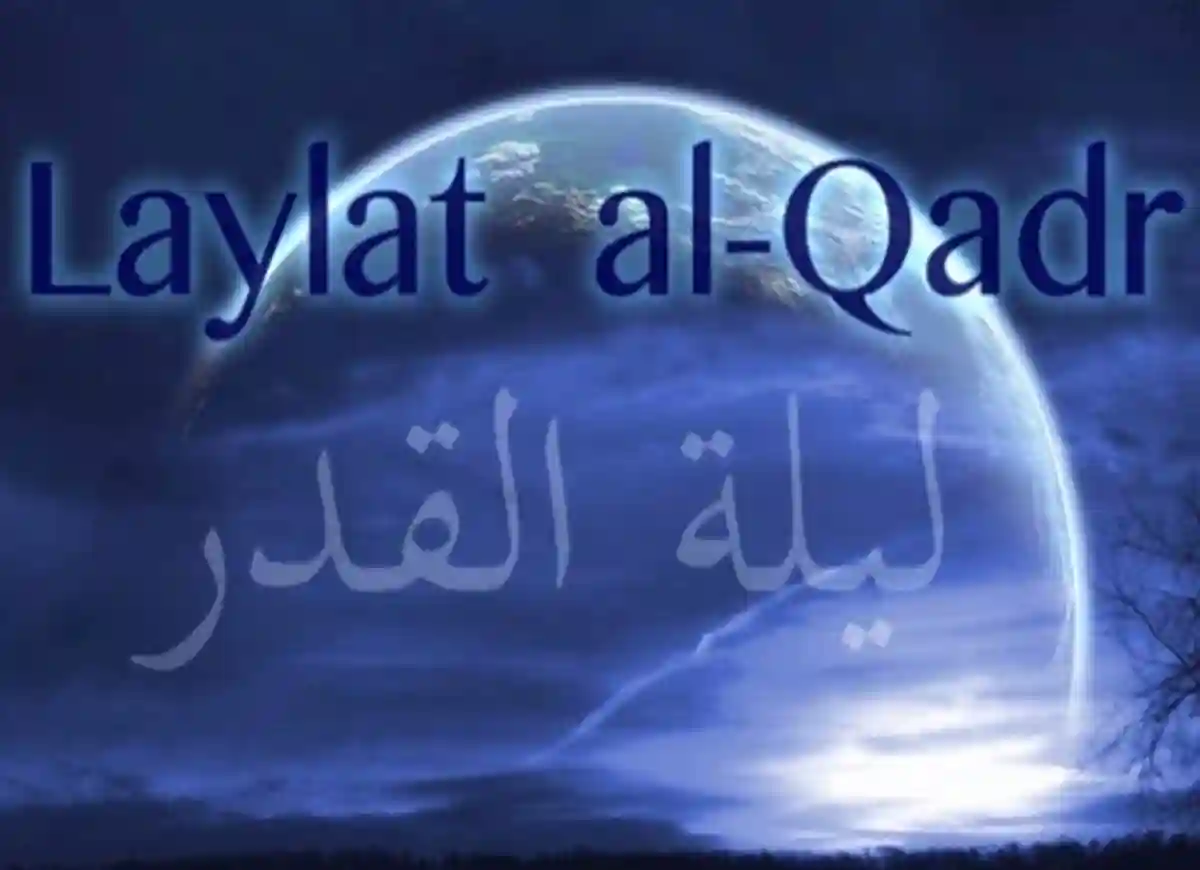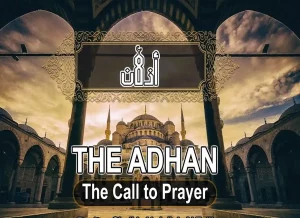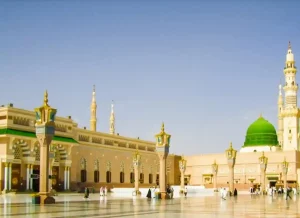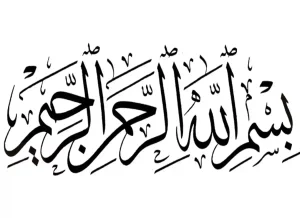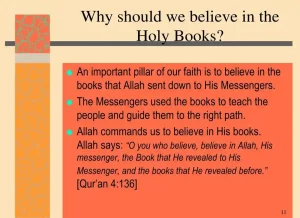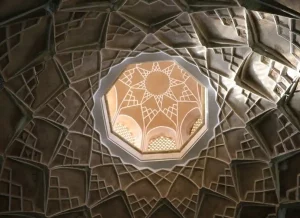The Night of Power, also known as Laylat al-Qadr, is a highly significant night in Islamic tradition. Surah Al-Qadr, a short chapter in the Quran, specifically speaks about this blessed night. Here’s what I can share with you about it:
Significance:
- Marked by the descent of the Quran: According to Islamic belief, the revelation of the Quran began on Laylat al-Qadr. This event is considered a pivotal moment in human history, marking the guidance of God directly communicated to Prophet Muhammad (PBUH).
- Spiritual blessings: It is believed that acts of worship performed on this night hold immense spiritual reward, said to be better than a thousand months of regular worship. Muslims strive to engage in prayer, reflection, and good deeds during this night to seek forgiveness and blessings from God.
- Unknown exact date: While the exact date of Laylat al-Qadr is unknown, Islamic traditions suggest it falls within the last ten odd nights of Ramadan. Muslims often intensify their worship during these nights in hopes of catching the Night of Power.
Surah Al-Qadr:
- Content: The five-verse Surah Al-Qadr highlights the significance of Laylat al-Qadr. It describes the night as one of peace, where angels and the spirit (Jibril) descend with divine decrees.
- Significance: Reciting or reflecting on Surah Al-Qadr can help Muslims appreciate the importance of this night and encourage them to intensify their worship during Ramadan.
In the name of Allah the Most Merciful Most Merciful.
- Indeed, we delivered it to you during the Night of Al-Qadr2. And what will make you aware of what the Night of Al-Qadr is?
- The Night of Al-Qadr is better than a thousand.
- The angels descend and the Ruh with the Lord’s blessing for all things.
- Peace is maintained until the dawn appears. Quran 97 Al-Qadr
Also Read: Fasting and The Fiqh
The virtues of the Night of Al-Qadr (the Decree)
Allah confirms that He gave the Quran down at nighttime during the Night of Al-Qadr. It is a night of blessing in which Allah declares,
We slid it down on an evening of joy 44:3]
This is known as the Night of Al-Qadr, observed in Ramadan. Ramadan. It is so because Allah states,
This month is Ramadan, during which the Quran was revealed in the Quran. 2:185285
Ibn Abbas and others have claimed that “Allah gave the Quran down in once from the Preserved Tablet (Al-Lawh the Al-Mahfuz) towards the House of Might (Baytul-Izzah) that is located in heaven, the highest point of this world. Then it was sent down in sections for The Messenger from Allah (Sallallaahu alaihi wa Sallam) in response to the events that took place over 23 years.”
Also Read: Laylatul Qadr: Unveiling the Profound Values of Life in Islam
Then Allah amplified the importance of the Night of Al-Qadr, which He chose to be the time of the revelation of the Magnificent Quran through His words,
And what will help you understand what the Night of Al-Qadr is?
The Night of Al-Qadr is said to be better than a thousand years.
[At-Tabari 24:531, 532 and Al-Qurtubi 20.130].
Imam Ahmad noted the fact that Abu Hurayrah said, “When Ramadan was upon us, The Messenger of Allah (Sallallaahu “alaihi wa Sallam) would declare,
“Verily, this month, Ramadan is upon us, everyone. It is a wonderful month in which Allah has made it obligatory for you all to observe a fast. Paradise doors open, the gates of Hell are shut, and the devils are held. There is a night that’s better than a thousand years. If anyone is lacking, its goodness is truly deprived.”
Also Read: Laylatul Qadr: Unveiling the Significance of the Most Important Night in Islam
[Ahmad 2:230] There’s a source for this narrative taken from the Hadith of Anas bin Malik in the Sunan’s book. Sunan. The Hadith of Anas bin Malik is found in the book of the Sunan. An-Nasai also recorded this Hadith. [An-Nasai 4:129]
In addition to the fact that worship on the Night of Al-Qadr is equivalent to a worship service that lasts for an entire 1,000 months, it’s also affirmed through the Two Sahihs from Abu Hurayrah that the Messenger of Allah (Sallallaahu ‘alaihi wa Sallam) declared,
“Whoever is (in prayers) in prayer during the Night of Al-Qadr with faith and is expecting a reward (from Allah), he is forgiven for his past transgressions.” (Fath Al-Bari 4;294 and Muslim 1:253253
Also Read: Laylatul Qadr Dua: Seeking Divine Blessings Through Translated Prayers
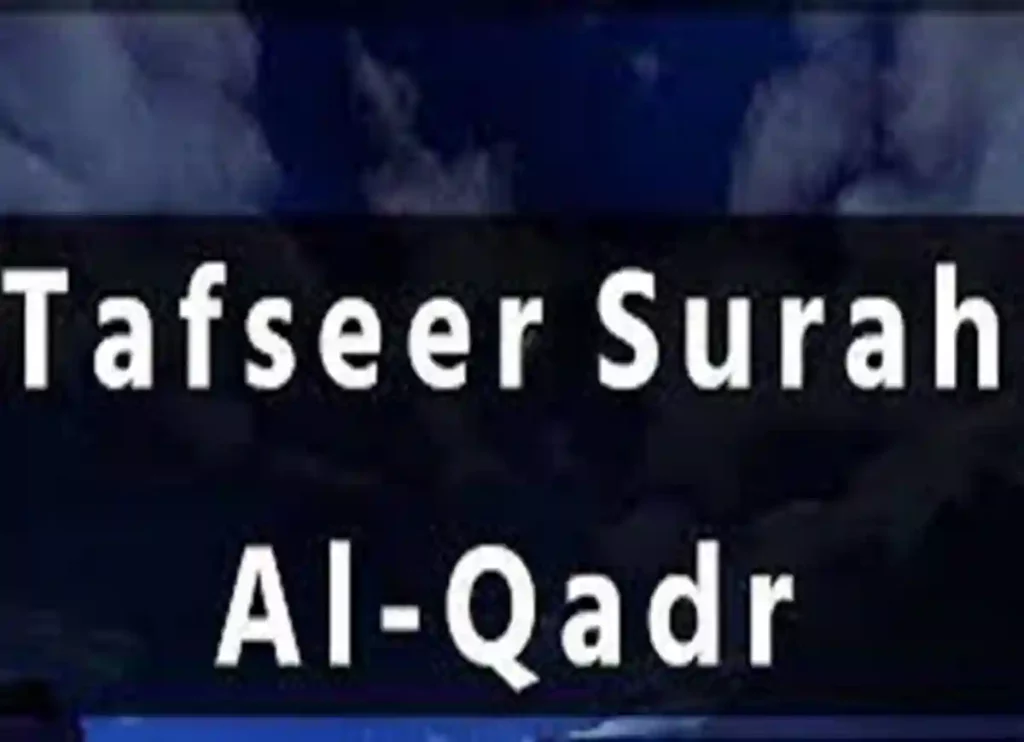
The Decline of angels and Decree of All Good on the night of Al-Qadr
Allah says,
In the midst of them are angels and the Ruh with the Lord’s blessing for all things.
The angels descend in large numbers on the Night of Al-Qadr because of its abundance of blessings. Angels descend in the descent of blessings and mercy like they descend when they hear the Quran is read. They surround the circle that is of Dhikr (remembrance to Allah) and then lift their wings in true reverence for the students of knowledge.
Ar-Ruh is stated to refer to the angel Jibril. Thus, the meaning in the Ayah is a way to add the name of the specific object (in this case, Jibril) distinct from the larger group (in this case, angels).
About Allah’s declaration, “with every matter.”
Mujahid declared, “Peace concerning every matter.” Sa’id bin Mansur claimed that Isa bin Yunus said that Al’mash told them what Mujahid stated about Allah’s declaration, “There is peace.”
“It is a security system that ensures Shaytan cannot do anything evil or cause injury.” Qatadah and others have stated, “The matters are determined in the course of it, and the dates of death and the provisions are weighed out (i.e., determined) during the process.” Allah says,
In the decree is every issue of the decree 44:4[ 44:4]
Then Allah affirms, “There remains peace till the dawn.” the dawn.”
Sa’id bin Mansur stated, “Hushaym narrated to us the authenticity of Abu Ishaq, who narrated Ash-Sha’bi’s words regarding Allah’s declaration,
In every circumstance, you can rest until the time of dawn.
“The angels presenting blessings of peace on this Night of Al-Qadr to the inhabitants of the Masjids till the dawn to Fajr (dawn).”
Qatadah and Ibn Zayd both said concerning Alla’s statement, “There is Peace.”
“This signifies that all is good and there’s nothing bad about it up to the time of Fajr (dawn).”
Also Read: Laylat al Qadr: Transforming Lives through the Pursuit of Knowledge
The specification of what is the Night of Decree and its Signs
This is confirmed by the information Imam Ahmad recorded from Ubadah bin As-Samit. The Messenger of Allah (Sallallaahu “alaihi wa Sallam) stated,
“The Night of Al-Qadr occurs in the final 10 (nights). If anyone stands with the night (in prayer) looking for their reward, Allah will forgive his past mistakes and later transgressions. It’s a strange night: the ninth, or seventh night, or the fifth, or the 3rd, or the night of the final night (of Ramadan).”
The Messenger of Allah (Sallallaahu alaihi wa Sallam) was also quoted as saying,
“Verily, the sign associated with”the Night of Al-Qadr is that it is bright and pure like the bright, calm, quiet moon. It’s not cold or hot, and no shooting star is permitted until dawn. The sign of this is the appearance of the sun at the dawn, with a smooth surface, without rays on it, much like the moon during the night of the full moon. Shaytan is not permitted to appear along with the sun (the sun) during that time.” (Ahmad 5:324. It’s a Mursal narration. It is a Mursal narration.
This narration sequence is a good one. The narrative has a few oddities, and some items make sense in particular words.
Abu Dawud mentioned a section in his Sunan called “Chapter: Clarification that the Night of Al-Qadr occurs during each Ramadan.” In the next paragraph, he noted the following: Abdullah bin Umar declared, “The Messenger of Allah (Sallallaahu ‘alaihi wa Sallam) was questioned regarding what was the Night of Al-Qadr while I was listening, and he replied,
Also Read: Iftar Drinks For Breaking The Ramadan Fasting
“It occurs each Ramadan.” (Abu Dawud 2:111. This narration is known as Mawquf.”
The people in this chain of narration are trustworthy. However, Abu Dawud said that Shu’bah and Sufyan both read from Ishaq, and they both believed the narration to be a declaration that was made by the Companion (Ibn Umar, therefore not the declaration from the Prophet (Sallallaahu alaihi wa Sallam) ).
There is a report that Abu Sa’id Al-Khudri said, “The Messenger of Allah (Sallallaahu “alaihi” wa Sallam) performed Itikaf throughout the first ten nights of Ramadan, and we performed it together with him. Then Jibril arrived at him and said to him,
“What you’re seeking is right there in front of you. So the Prophet (Sallallaahu alaihi wa Sallam) was able to perform Itikaf throughout the middle ten days of Ramadan, and we performed Itikaf together. Then Jibril appeared to him and said, “What you’re looking for is right before you.
So the Prophet (Sallallaahu ‘alaihi Sallam) stood up and delivered a sermon in the early morning of the twentieth day of Ramadan, And he said:
“Whoever did Itikaf with me, I invite him to return (for Itikaf again) since I was able to see it during the Night of Al-Qadr, and I was compelled to forget about it, and in fact, it happened in the last 10 (nights). It’s an unusual night, and I could see myself as if I was laying prone in water and mud.”
The top of the Masjid was constructed of dried palm tree leaves, and we didn’t observe anything (i.e., cloud formations) over the sky. However, the clouds were driven by wind. Then, a patch appeared, and it started to rain. The Prophet (Sallallaahu “alaihi” wa Sallam) led us in prayer until we could see the evidence of water and mud upon the face of the Messenger of Allah (Sallallaahu ‘alaihi wa Sallam), and this confirmed his vision.”
In a narration, it states that it happened in the early morning of the twenty-first night (meaning the following morning). Both (Al-Bukhari and Muslim) recorded the incident as part of The Two Sahihs. “[Fath Al Bari 2:329, 318 and Muslim 2:824].
Also Read: The Holy Month – 3 Stages of The Ramadan
Ash-Shafii claimed, “This Hadith is the most reliable of what is said.” It has also been reported that it was recited on the night of the twenty-third due to a Hadith by Abdullah bin Unays in Sahih Muslim. [Muslim 2:827]
It is also stated that it occurred on the twenty-fifth evening because of the information that Al-Bukhari noted from Ibn Abbas that the Messenger of Allah stated,
“Seek it during the final Ten (nights) during Ramadan. In the ninth night, it is in the seventh, it is still there, and in the fifth, it is.” The Fath Al-Bari 4:306[Fath Al-Bari 4:306]
Many have interpreted the Hadith as referring to odd nights, which is the most apparent and well-known explanation. There is also a claim that it takes place on the twenty-seventh of July due to the fact that Muslims are noted in the Sahih in Ubay bin Ka’b. Messenger of Allah (Sallallahu Alaihi wa Sallam) declared that it occurred on the night of the twenty-seventh. [Muslim 2:828]
Imam Ahmad recorded from Zirr that he asked Ubayy bin Ka’b, “O Abu Al-Mundhir! In reality, your brother Ibn Ma’ud said that anyone who prays (at night) throughout the year will experience that night known as Al-Qadr .” Ubayy (Ubayy) declared, “May Allah have mercy on him. He is aware that it’s the twenty-seventh night.” He then swore that he was a prophet of Allah. Zirr then asked, “How do you know this?” Ubayy replied, “by an indication or a sign that the Prophet (the Prophet (Sallallaahu alaihi wa Sallam) ) was informed of. The next day, it rises with no light. That is, it is the sun.” [Ahmad 5:130[Ahmad 5:130] Muslims could also record it. [Muslim 2:828]
Also Read: Try These 12 International Iftars Dishes This Ramadan
It has been reported that it’s the evening of the twenty-ninth. The Imam Ahmad bin Hanbal wrote in the ‘Ubadah bin Assamit that he questioned his Messenger of Allah (Sallallaahu alaihi wa Sallam) about the Night of Decree, and he responded,
“Seek it during Ramadan during the last ten days. It’s on the odd nights that is the twenty-first, twenty-third, twenty-fifth, twenty-seventh, twenty-ninth, or twenty-ninth night.”
“Ahmad 5:318” has an error in the narration, but the meanings are derived from other sources.[Ahmad 5:318]
Imam Ahmad also recorded from Abu Hurayrah that the Messenger of Allah (Sallallaahu alaihi wa Sallam) stated about the Night of Al-Qadr.
“Verily, this is the twenty-seventh or twenty-ninth night. Also, the angels that are on the earth at night are greater than the amount of pebbles.” [Ahmad 2:519[Ahmad 2:519]
Ahmad was the sole person to record the Hadith, and there’s nothing wrong with the chain of narration.
At-Tirmidhi noted from Abu Qilabah in Abu Qilabah that he had said, “the Night of Al-Qadr changes (i.e., the night shifts throughout the year) over the past ten days.”
Malik Ath-Thawri Ahmad bin Hanbal, Ishaq bin Rahuyah, Abu Thar, Al-Muzani, Abu Bakr bin Khuzaymah, and many others also recorded this interpretation that At-Tirmidhi quotes from Abu Qilabah. The idea has also been reported to Ash-Shafi’i, and Al-Qadhi also said he heard it from him, which is probably true. And Allah knows best.
Also Read: Fasting Dua: Nourishing The Soul with a Prayerful Heart
Supplication in the Night of Decree
It is advised to supplicate frequently throughout the day, particularly in the months of Ramadan and in the last ten days, and in the occasional night of it, more. It is suggested to make the following supplication often:
“O Allah! You are the one who never forgives; you love pardons, so pardon me.”
This is because of the words that Imam Ahmad recorded from Aishah, who had stated, “O Messenger of Allah! What should I say if I discover that I am in the Night of Al-Qadr?” He (Sallallaahu ‘alaihi wa Sallam) responded,
Say: “O Allah! Indeed, You are the Most Pardoning. You’re a lover of pardoning, and please pardon me.”
[Ahmad 6:182]
At-Tirmidhi’s and An-Nasai’s Ibn Majah have all recorded this Hadith. At-Tirmdhi stated, “This Hadith is Hasan Sahih.” [Tahfat al-Ahwadhi 9;495, An- in Al-Kurba 6:218 as well Ibn Majah 2:1265]
Al-Hakim recorded the recording on his Mustadrak (with another narration chain) and said it was authentic per the requirements for both Shaykhs (Al-Bukhari and Muslim). Al-Hakim 1:530 An Nasai also recorded it. [An-Nasai in Al-Kubra 6:219]
Categories: PRAYER (Salat), ALMS (Zakat), SAWN (Fasting) HAJJ (Pilgrimage) & DUA (Supplications), Hadith and Tafseer, The Holy Quran, Quran Jaz 1- 114
Topics: Hijab, Arabic Corner, Islamic History, Biography, Islamic Studies, Halal & Haram


